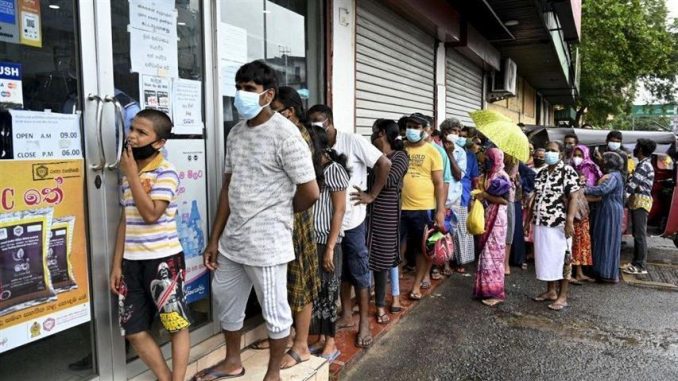
Nearly 6.26 million people in Sri Lanka, three in 10 households, do not know where their next meal will come from, according to the latest assessment on food insecurity by the World Food Programme (WFP).
Given the record inflation of food prices, the dramatic rise in fuel prices and the widespread shortage of basic products, nearly 61 percent of households are decreasing the portions they eat and consuming less nutritional meals, the Adaderana website published.
The WFP warned that the lack of nutrition has serious effects on pregnant women as it jeopardizes their health and their children’s.
Future mothers need nutritional food every day, but it is ever more difficult for the poorest ones to afford basic products, WFP Deputy Regional Director for the Asia and Pacific Region, Anthea Webb, said last month.
To fight the food crisis and its effect on malnutrition, the WFP is distributing monthly food coupons to pregnant women in some of the poorest neighborhoods, and the local government is providing prenatal care.
Amid a 57.4-percent inflation rate, the sharp increase of food price reduces the capability of the population to put enough and nutritional food on the table, so two in five households do not have an adequate diet. Sri Lanka is suffering its worst economic crisis since its independence in 1948, something that has been worsened by the successive Covid-19 waves, which threatens to reverse the years of progress in development and undermine the country’s capability to meet the Sustainable Development Goals (SDGs), the WFP reported.
Prensa Latina

Be the first to comment